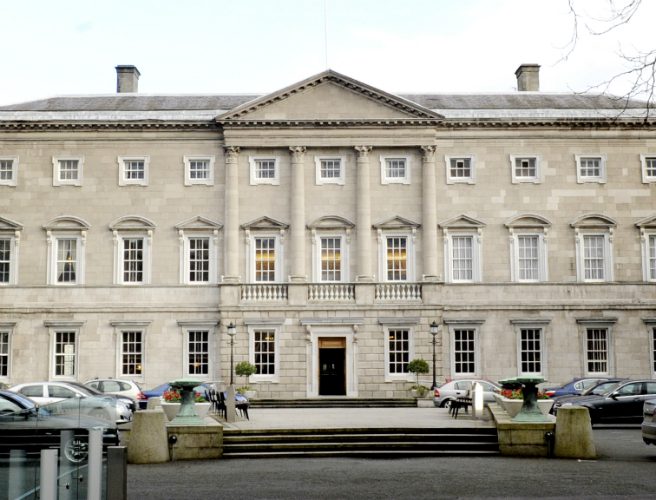
This session of the Irish Dail (Dáil Éireann, or the Irish parliament) is rife with measures to restrict freedom of religion and protest while potentially granting greater freedom to the surrogacy industry, the Iona Institute for Religion and Society warned.
The ‘Save Access Zones’ bill has been prioritised as part of the government’s new legislative programme. The law will prohibit any activity, deemed to ‘interfere’ with a woman’s decision to have an abortion, from taking place within 100 metres of facilities that offer the procedure. The bill is intended to prevent pro-life activists from gathering outside of hospitals or clinics that provide abortions, whether they are silently praying or peacefully protesting.
“If and when it is passed into law, it will be one of the few such pieces of legislation anywhere,” the Iona Institute said in a statement. “Other countries have more respect for freedom of protest. Even the Gardai Commissioner said that there was no need for such legislation, as current laws can deal with whatever issue might arise.”
The government approved the outline of the bill at the end of July. A full draft is expected to be presented to the Oireachtas before Christmas.
A hate crime bill is also listed as a legislative priority.
“This legislation will create new ‘hate crime’ offences when certain offences are aggravated by alleged hatred towards a protected characteristic such as sexual orientation, gender identity or expression, race, nationality, or religion,” the Iona Institute explained.
The think tank submitted its concerns about the law to the Department of Justice, warning that the difficulty of determining what is truly ‘hateful’ will cause the law to have “a chilling effect on freedom of expression, including religious freedom of expression.”
Not listed as priority legislation, though, was the Assisted Human Reproduction Bill, which covers a large number of issues such as surrogacy, IVF, gamete donation, and embryo experimentation.
According to the Iona Institute, the law was drafted in 2017 and presented to the Oireachtas with substantial changes in March but the government has put it on legislative pause to take into consideration the recommendations of the Joint Committee on International Surrogacy.
The current draft of the Assisted Human Reproduction Bill would prohibit commercial surrogacy in Ireland, but the surrogacy committee recommended recognising international commercial surrogacy, a situation with obvious contradictions. According to the Iona Institute, government officials told the committee that recognising surrogacy abroad but not allowing it within Ireland would create a double standard.
Recent government statements on the issue have been contradictory, as well.
State Minister Mary Butler acknowledged: “The undertaking of surrogacy arrangements in other jurisdictions raises complex ethical questions … There are also highly divergent views within the EU on this issue, with a number of member states prohibiting all forms of surrogacy.”
“This has been interpreted as a suggestion that international surrogacy would not be part of the AHR bill, causing a protest from those who want us to recognise commercial surrogacy in some form,” the Iona Institute explained.
Statements from Justice Minister Helen McEntee and Health Minister Stephen Donnelly have also shown there’s division, or indecision, concerning surrogacy within the government. McEntee has stated that the government would propose recognising international surrogacy while Donnelly’s statements have been less clear about what legislative path the government will take.
“Overall, the government’s legislative programme is bad news for those who value the right-to-life, freedom of religious expression, and who oppose the commodification of children and women’s wombs that is entailed by commercial surrogacy,” the Iona Institute warned.
